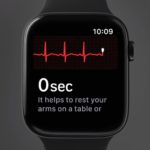 The promise of health data to enable us to make smarter and faster healthcare decisions has been one I’ve touched upon numerous times in the past. There has been considerable concern around the data itself however, whether in terms of ownership of the data or the ability to make sense of it.
The promise of health data to enable us to make smarter and faster healthcare decisions has been one I’ve touched upon numerous times in the past. There has been considerable concern around the data itself however, whether in terms of ownership of the data or the ability to make sense of it.
This latter point has been of particular concern to doctors who are time pressed at the best of times, and already bemoan the way electronic medical records take them away from patients. Some have suggested that AI can step in and do a lot of the diagnostic work for us, but with regulatory approval far from guaranteed, this approach is still waiting to take off.
Bulgarian startup Checkpoint Cardio attempt to meet us half way. The company, which was founded in 2014, gathers cardiac and other biometric data from a wearable device, with the aim of providing a range of early diagnostics, and preventative services. Rather than relying on doctors, or indeed AI to analyze the data however, the data is streamed to a team of nurses operating in a command center type environment, where each nurse can be monitoring up to 50 people at any one time.
The platform operates via a wearable devices fitted to a chest strap worn by the user. There are some noticeable hurdles for the company to overcome to secure widespread adoption. First up is the staffing challenges they face in ensuring they have enough qualified people to assess the data. Healthcare providers around the world are struggling to attract nurses, and it’s hard to imagine many will be lured by the prospect of staring at a monitor full of data all day rather than being hands on with patients.
If they decide to automate the assessment of data, then they face challenges from a raft of other wearable ECG applications, not least of which is the latest Apple Watch.
Overcome with data
Doctors have already shown a degree of skepticism towards the device, with many worried that it will provide unreliable data and raise the prospect of creating a false sense of risk among users who become paranoid about their health and overuse health services as a result.
These are undoubtedly valid concerns, but the rise of user-generated wearable data is a trend that is unlikely to go away, so it’s vital that the medical profession adapts to this trend rather than dismisses it. The ability of such devices to offer real-time insights into patients is too valuable to dismiss out of hand.
Unlike the Checkpoint chest strap, the Apple Watch will allow users to conduct an ECG by touching the digital crown of the device for 30 seconds, with the aim being to detect abnormal hearth rhythms, such as atrial fibrillation.
It’s worth remembering that when ECGs first entered the market, they were exclusively interpreted by physicians, but now the data is such that computers can do the same job. Such computerized analysis has been part of routine health care for decades now, with a study as far back as 1991 showing the accuracy of computers versus trained medics.
Suffice to say, the Apple Watch ECG is still a way off achieving this level of service, with a recent study suggesting that around 1/3 of the ECG recordings weren’t usable by algorithms, with the algorithm making errors on the data that it could interpret. So despite it being cleared for commercial use by the FDA, there is clearly still some way to go before it is medically useful.
Services like Checkpoint Cardio may provide value before algorithms get up to speed, but they will struggle to match the scale of Apple, who sold around 18 million Apple Watches in 2017 alone. With that level of data available, you would have to be confident that their algorithms would improve pretty quickly.
I’ve written numerous times before about the value data can bring to healthcare, and it seems the various issues surrounding it are slowly being worked through. Time will tell if either CheckpointCardio of the Apple Watch deliver long-term impact to the healthcare sector.